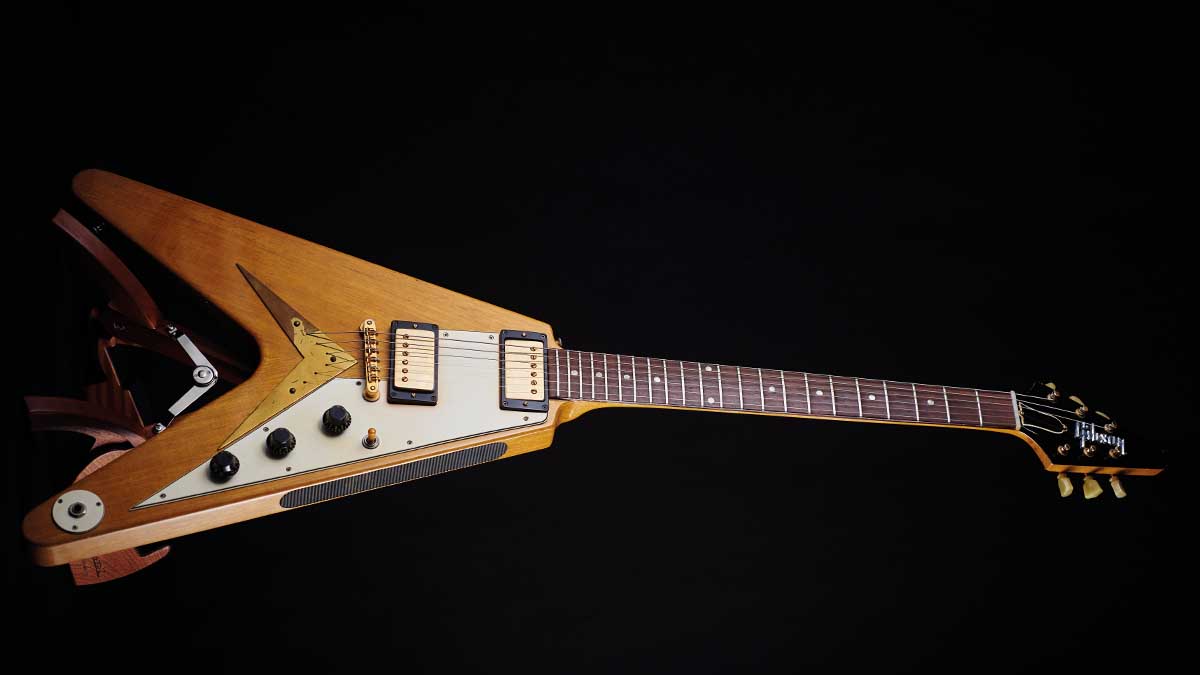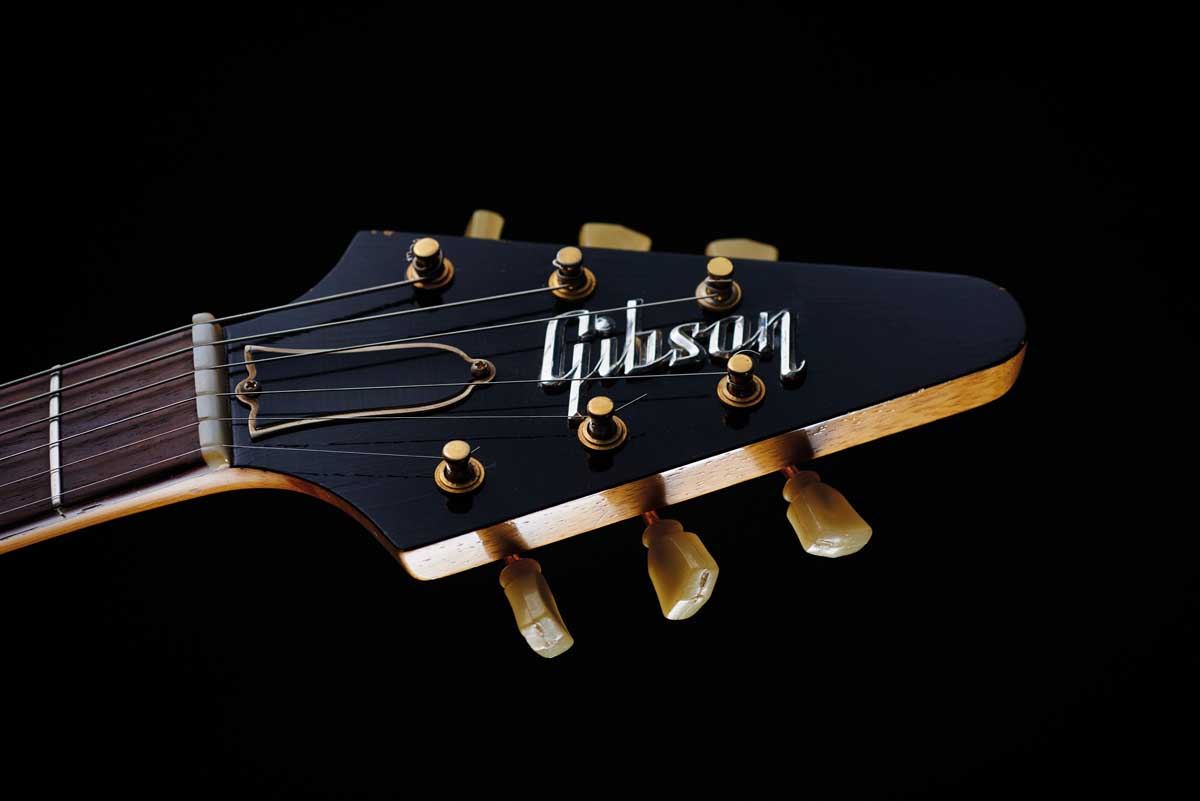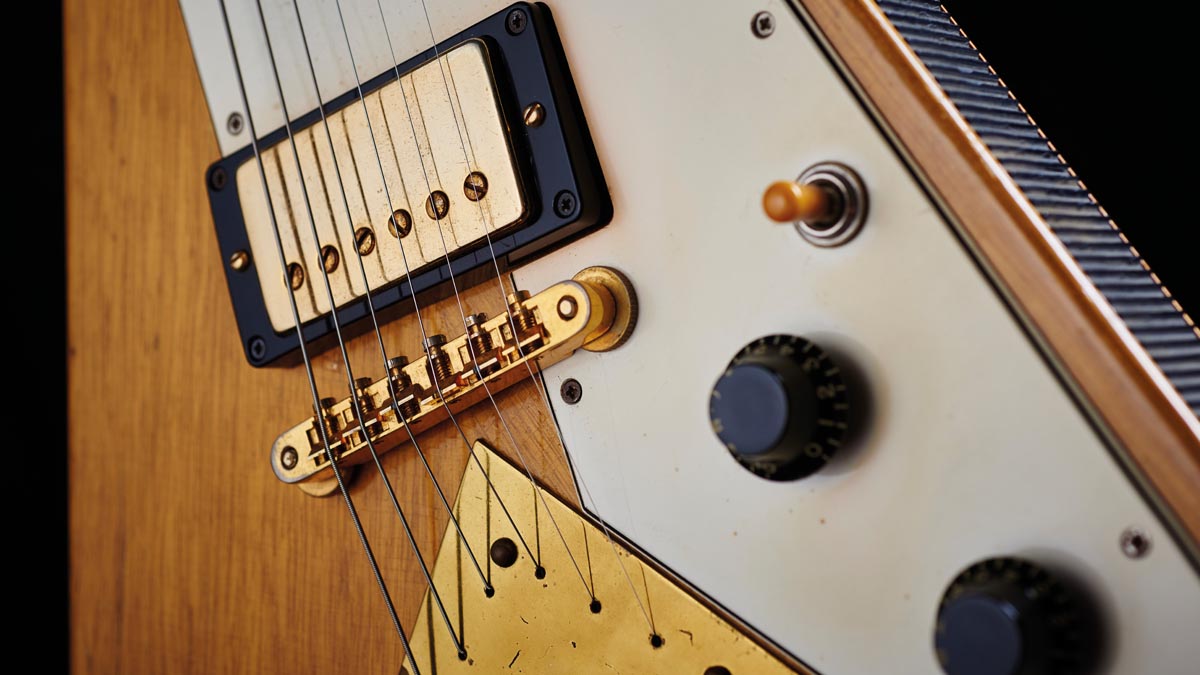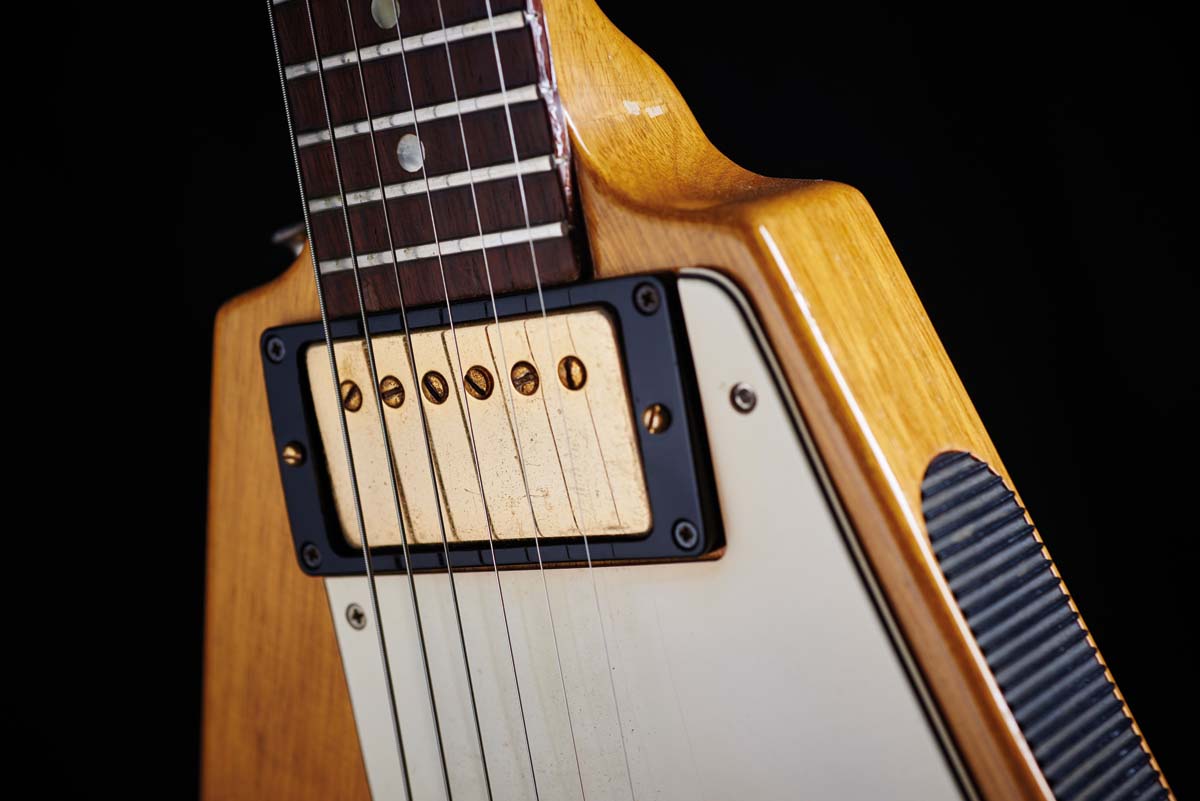Gibson Flying V: the futuristic electric guitar that was ahead of its time
Futuristic in both design and success, the Flying V was ahead of its time

By the late 50s, it was clear to Gibson that solidbodies might be more than just a passing fad.
Electric guitars overtook acoustic guitar production at its Kalamazoo factory for the first time in 1954 – the same year Fender released its ultramodern Stratocaster – and the total number of instruments shipped in its Les Paul range had been increasing year upon year since 1952.
However, in 1957, a downturn in sales stung Gibson president Ted McCarty and his team into action.
What they needed, they felt, was something to compete with the sleek, forward-thinking image of Fender: distinctive solidbody guitar designs that would elevate them beyond their staid reputation as builders of traditional-looking instruments.
After much brainstorming, three new solidbody design patents relating to the Futura/Explorer, ‘Moderne’ and Flying V were filed in June 1957 and subsequently issued in January 1958.


Collectively, these became known as Gibson’s Modernistic range. The so-called Moderne of the 50s has yet to make an appearance and has become mythologized in guitar lore, although both the Explorer and Flying V went into production soon after their conception.
Having been announced in the November 1957 issue of Gibson’s promotional magazine, the Gibson Gazette, as “the futuristic… really forward-looking instrument” with a “swept back design”, the first production Flying V was logged in February 1958 and dealers began receiving shipments from April that year.
Get The Pick Newsletter
All the latest guitar news, interviews, lessons, reviews, deals and more, direct to your inbox!
Aside from an unbound, dot-inlaid rosewood fingerboard, its mid-range price belied a set of remarkable high-end appointments.
Debuting in Gibson’s March 1958 catalog, the Flying V was listed at $247.50, the same price as a Les Paul Standard at the time – and fairly close to the cost of a Fender Stratocaster.
Nevertheless, aside from an unbound, dot-inlaid rosewood fingerboard, its mid-range price belied a set of remarkable high-end appointments.
The recently introduced PAF humbuckers with gold covers, the trendy light-colored korina body and neck, the bespoke ‘Cadillac V’ string-through-body tailpiece, gold-plated hardware throughout, and – undoubtedly most striking of all – the outlandish body shape: all combined to create something truly special.

Albeit a little too ‘special’ for most people’s tastes back in the late 50s… The Flying V was grounded before it took off and shipping records show that just shy of 100 left the factory before the model was discontinued in 1959. This left a surplus of Flying V bodies and necks that were eventually put to good use in the early 60s when around 20 guitars were assembled.
Albert King, Lonnie Mack and Dave Davies all played their part in stirring up enough interest for Gibson to reissue 175 Vibrola-equipped mahogany models in the late 60s
These rare examples can be distinguished by their nickel-plated hardware, patent-numbered humbuckers, metal-capped bonnet knobs and nylon bridge saddles.
1957
Design patent filed; Gibson Gazette announces “modernistic” Flying V model.
Early 1958
Patent number 181,867 issued; first model logged (“Flying V in Korina”).
Spring/summer 1958
First appearance in Gibson catalog and first instruments shipped in springtime; displayed at Chicago NAMM show in July.
1958 to 1959
81 Flying Vs recorded shipped in 1958; discontinued in 1959; 17 Flying Vs recorded shipped.
Early 60s
Leftover Flying Vs assembled; c. 20 shipped; nickel-plated hardware; patent-numbered humbuckers.
Late 60s
Reissued; 175 shipped; mahogany body/neck; chrome-plated hardware; triangular knob formation; vibrato.
1971
Limited-edition ‘medallion’ model; c. 350 shipped; numbered medallion on bass leg; no vibrato.
1975
Second reissue
As can be the case with even the subtlest of guitar design quirks, the Flying V first needed to be seen in the hands of several famous guitarists before gaining widespread acceptance.
Albert King, Lonnie Mack and Dave Davies all played their part in stirring up enough interest for Gibson to reissue 175 Vibrola-equipped mahogany models in the late 60s, and very soon the Flying V was seen in the hands of perhaps the greatest guitar influencer of his generation, Jimi Hendrix.
As the 70s unfolded, the Flying V really began to fly as a hard-rock statement guitar, with Gibson having released dozens of permutations since its inception. Current Gibson models include the Flying V, 1967 Flying V w/ Vibrola, 70s Flying V, Flying V Custom and Flying V B-2.
Rod Brakes is a music journalist with an expertise in guitars. Having spent many years at the coalface as a guitar dealer and tech, Rod's more recent work as a writer covering artists, industry pros and gear includes contributions for leading publications and websites such as Guitarist, Total Guitar, Guitar World, Guitar Player and MusicRadar in addition to specialist music books, blogs and social media. He is also a lifelong musician.
“It holds its own purely as a playable guitar. It’s really cool for the traveling musician – you can bring it on a flight and it fits beneath the seat”: Why Steve Stevens put his name to a foldable guitar
“Finely tuned instruments with effortless playability and one of the best vibratos there is”: PRS Standard 24 Satin and S2 Standard 24 Satin review










